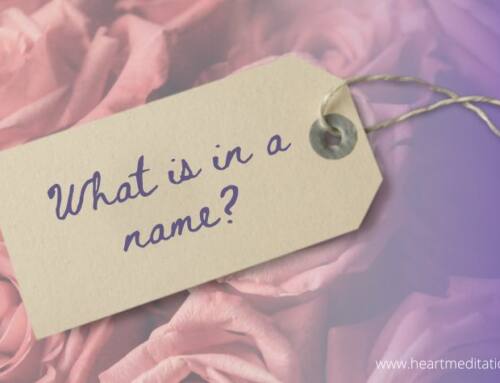Darkness and Light
Whether we realise it or not our universe is underpinned by the joining of contrasting forces, which often produce paradoxes. In fact, one can say it’s a sign of the greatness of the Creator who can produce a universe based on bringing together paradoxes. These paradoxes are often only resolved by a knowledge that shifts our perspectives. Thus, according to a certain viewpoint one can say that the purpose of these paradoxes is to push us to examine our outlook, in a way that forces us to grow, through increasing our knowledge of the universe.
These contrasting forces also result in the joining of opposite motifs in creation: like darkness and light, visible and invisible just to name a few. These opposite motifs are one way for the Unity behind creation to make itself known. As Unity can only be understood through duality or multiplicity. Just like light can only be understood by observing darkness.
All these perspectives are important ways to examine the universe at large in order to gain a deeper appreciation of its splendour.
Light and darkness themselves can also be used to understand many contrasting phenomena in our lives. Like good and evil, selfishness and selflessness, tolerance and intolerance, to name a few.
When we use such analysis, we can surmise many important points, like why good and evil exist as possibilities, and why our Creator has created us as bi-dimensional beings. As within our makeup there exists a soul and body, one of which is immaterial and the other material. Thus, by bringing these two different natures together, the Creator has given us the possibility to grow, and use both aspects of ourselves to enhance creation, or even regress by using these aspects in a way that destroys our environment, our way of life and all inhabitants of this world.
Consequently, it’s how we use both aspects of ourselves that determines whether we evolve to a higher plane of existence or regress to a lower one. Both are possibilities given to us by our Creator. As free will only has meaning when such possibilities exist, and by giving us these possibilities our creator has provided us immense potential for exploration of our free will, as well as making us responsible for our choices. Accordingly, our free will and our responsibility for our choices are two sides of the same coin, which we are here to explore.
Yet, our Creator has not left us without aid in this process, as through exploration of our souls, all humanity can become connected to their origins and guided by the creative force that has created all we see. This is the message of all spiritual masters, who advise humanity to abandon their egoistic ways by reining their egos and establishing their own connection to their origins. As by doing so, many issues associated with inner unrest and alienation can be resolved. As through this type of connection we can gain substantial answers to our innate existential questions like who we are, why we are here, and where we come from.
Therefore, light and darkness can be considered as analogies for knowledge and ignorance of our own reality, and how we orient our lives in regard to answering our existential questions. As it’s our ignorance of our own reality that makes us follow our egotistical desires at the expense of the development of our souls. This was expressed by Plato, who said ‘the greatest evil is ignorance.’ Thus, in some sense the greatest evil comes about by ignoring our own reality and its immense potential and falling into traps set by our ego, by committing egotistical acts. It’s these acts that make humans regress, and even become tyrants, who are too self-obsessed to care about others.
The following story sheds light on how our orientation makes us relate to the above light and darkness analogy, and the consequences of our choices.
Many centuries ago there lived a tyrannical king who not only wanted everyone to obey him, but wanted to control everybody too. His desire for absolute control made him paranoid, as he lived in constant fear of uprisings by his people and those at court.
Amongst his court there was also a sage, who long ago had abandoned any display of outer wisdom, due to fear for his life, and instead had taken to outwardly foolish ways as a means of survival. Due to the outward foolish behaviour of the jester, the king had become fond of him, and had even started to trust him, as the king did not see him as a threat.
On one occasion, when the king had grown even more paranoid than usual and wanted to control even the smallest details of life at court, he opened up to his jester in a desperate tone, “You know, you’re the only one I can trust. As everyone in this court is incompetent or up to no good. Even my own family are plotting my demise!”
“Sire, I truly sympathise with your predicament, it must be terrible to live in a state of fear of betrayal. For it brings no inward or outward peace.” Sighed the jester.
The jester then tried to play up to the king by saying, “But your majesty, I think I may have an idea which might help you, as well as take your mind off your problem.”
The king in a doubtful voice replied “Really? How?”
“By playing a game of chance, your majesty. As I know you love games, especially those where you can show your true prowess…” answered the tenacious jester.
The king, who loved games retorted “You know, I think you’re my only true friend, as you’re the only one who seems to care about my well-being. So, tell me more about this game of yours and how it can help with my problem.”
The jester grinned, “Sire, it’s not complicated, it’s simply a game of chance where we decide on a wager and then flip a coin, and whoever calls the outcome wins the wager.”
The king in a dissatisfied tone replied, “That hardly sounds like an interesting or original game”
The jester mischievously responded, “Well sire, the mechanics of the game itself are uninteresting, but what makes it interesting are the wagers involved!”
“How so?” Queried the intrigued king.
The jester cheekily replied, “You see your majesty, the wagers involve the members of court, whom you were just complaining about. As in this game we will line up all those whom you distrust or dislike, and let the coin toss determine their fate!”
The king raised his eyebrow and responded “Hmm… that sounds intriguing.” He then continued vengefully, “So who should we call up first for this game of yours?”
The jester calmly answered, “How about we start with the vizier, who is your right-hand man, as he stands to benefit from your downfall.”
The king on hearing the name of Vizier started to wring his hands together, and said excitedly, “Oh yes, that is a great idea. As I never really trusted him, for he was picked by my father, and ever since then I think he has resented my kingship.”
Then after a moment of reflection the king enquired, “But will people not see me as unjust if we punish them based on the mere outcome of a coin toss?”
“Well sire, as the gods decide all our fates, one can say the outcome of a coin toss is really an expression of their will, after all, who are we to question the gods and our fate?” Replied the jester nonchalantly.
The king commented, “Yes I see! What you say makes perfect sense, as rather than spend time trying to prove their treachery, which is all obvious to me, we let the gods decide; as they know all things. After all who can dare to question the wisdom of the gods! For they’ll know the full extent of their treacherousness, no matter how they try to conceal it. So tell me, how do we determine the winner of the coin toss?”
The jester calmly replied, “That’s quite simple sire, as you don’t want to be blamed for the gods’ decisions, let me perform the coin toss. And if you win, you can then consider that as the gods’ approval for you to be their conduit, and thus punish those in question, and if you lose, I suggest you take that as an omen for their innocence.”
“I see! So, tell me, who should call out first in this game of yours.” asked the king eagerly.
“Your majesty, I suggest, as you don’t want to be seen as vindictive, you let me do the calling too, and then your victory will not be seen as a type of revenge. Therefore, let’s for arguments sake agree that if the coin lands on heads, I win, and if it’s tails you lose, and in this way the gods can show their verdict on the matter in an unbiased way!” Responded the roguish jester.
The king, who was now totally caught up with the prospects of punishing his traitorous court hastily agreed to the jester’s narrative and promptly called up the members of his court. After explaining the game, he asked his vizier to walk up and face his fate.
The jester after flipping backwards and forwards, to mimic the flipping of a coin, flipped the coin and called out with a flippant frown “Sire, its tails, sadly this means the gods deem the Vizier innocent.”
The relieved Vizier calmly walked back to his spot, much to the resentment of the king, who was certain of his guilt. The king then called up his younger brother, whom he also suspected of betrayal.
Again, the jester flipped back and forth, then tossed the coin and cunningly shouted, “Your majesty, its heads! Therefore, as agreed, you have sadly lost again, and we can assume your brother is also innocent.”
So it was that the next few members of court walked free. The king who was growing distrustful and angry yelled, “I can’t believe all these people are innocent. I think there is something wrong with this game of yours!”
The king then started to think back to the jester’s comments and gave a suspicious look at the jester, “Hmm… are you trying to pull the wool over my eyes? As it seems I will always lose based on your rules. I mean didn’t you say ‘if it’s heads you win and if it’s tails I lose’?”
The jester, who felt the king glaring at him, hit his own head with an open hand and bowed apologetically,“ Oh your majesty, how stupid of me! You’re quite right, I must have made a stupid error in the heat of the moment and got my words twisted. But luckily we have you as our sovereign, who is wise enough to have spotted my error. And as you know I am a fool, and I guess once a fool, always a fool. So, I tell you what your majesty, how about we change the way we call the coin toss, and I fix my call to heads? That way the only variability will be which side will end up facing up?”
The king begrudgingly agreed, however since he was now mistrustful of the jester, retorted, “But this time I will flip the coin!” The jester with sleight of hand, quickly gave the king a coin which would only land heads up, bowed and replied, “As you wish sire!”
The king then called up his next suspect and flipped the coin, but much to his disappointment and frustration the coin landed heads up, so he had no choice but to let the suspect walk. After a few more heads, the king in an irate voice shouted, “How can the gods see no suspicious behaviour in all these people, as I am sure they are all guilty of treachery? I mean how can we have so many heads in a row?”
The jester shirked his shoulders and cunningly said, “Sire, who knows what the gods see and don’t see in their wisdom, as for all we know the coin might have just landed heads up because of the sanctity of your sovereignty, and divine rule. As we may have seen only heads in your coin toss because the gods didn’t want to have the image of you wearing the crown land face down!”
The jester continued, “Your majesty let me take on my thinking pose, as I get some of my best ideas that way.” He then performed a handstand and after a pause mischievously yelled, “Eureka! I think I have got the perfect remedy for your predicament!”
The king who was now growing ever more doubtful of his jester, sighed disbelievingly, “What is your remedy now?”
“Well, as your sovereignty is represented by your crown, which you wear on your head, maybe you should take off the crown and hand it to me. And in this way the gods will see the crown in the hand of someone less sacred than yourself, and then let the coin behave as it should!” Retorted the cheeky jester.
The king angrily replied, “But if I do that, I’ll no longer be king, as the person who wears the crown is the rightful king!”
The jester calmly retorted “But sire, surely, it’s not the person who wears the crown who is the lord of a person, or a kingdom, but the one who issues commands that others obey. While the subject is always the one who is subservient to the command. So, the question you need to ask yourself your majesty, is not about who wears the crown, or who is always scheming to steal it, but who is always issuing commands and who allows themselves to become subservient to those commands. As sometimes both the commanding and subservient entity can be hidden, and thus one’s servitude or kingship is never as apparent as people assume.”
The king who was caught out by his jester’s response, answered, “What does a fool like you know about kingship and command?”
The jester remorsefully retorted, “Your majesty, I am nothing but a foolish servant. However, my comments come from being a servant. After all, it was Plato who said it best, when he said, ‘one can’t be a good master until one is a good servant.’ So, I suggest maybe the energy you employ regarding your fear of treachery is better served channelled on self-examination of the hidden sources of kingship and servitude. As to be born a king, or a jester is at times a mere coin toss of fate, but within this coin toss there is immense potential to evolve to true kingship of soul, or regress to complete servitude of one’s ego…!”
The above story contains many symbols from which a spiritual seeker can learn important lessons about life, decision making, and the destiny we create from our decisions. Also, how we often misuse or wrongly associate our desires to the will of higher consciousness, as a pretext to commit acts that are purely egoistic in nature.
Moreover, the initial cards we’re dealt in life may appear as random as a coin toss, but in reality, they hold both hidden and visible potentials which we can only understand through the optimal use of choices and decisions we make during our lives. As it’s these choices and how we react to them that unleash the potentials that are hidden within our diversity as human beings. Yet, sadly when we act as a tyrant by obeying the desires of our ego, which wants absolute control of all those around, as well as follow the path of instant gratification, we in effect destroy or leave those potentials untapped.
Furthermore, in life we assume many situations are random. However, what we fail to see is that each choice we make, has a nested effect on other choices and opportunities that are created as a result. If we had spent more time evaluating those initial choices and their effects, we would have produced more desirable opportunities. Thus, on many occasions what may seem random, is the result of a chain of events we have unleashed by misunderstanding or ignoring the spiritual principles, and the principle of cause and effect.
The only way for us to fully appreciate this fact is to follow the words of Socrates who famously said, ‘an unexamined life is not worth living.’ Thus, the path of self-examination is the means of creating a destiny that unleashes all our potentials both visible and hidden. As it’s through self-examination that we realise our decisions are often ruled by the subconscious, resulting from reactionary emotions that bring unease and unleash a chain of undesirable consequences.
Given all this, the question remains – do we act like the king in the story, and let ourselves be fooled by the so-called game of chance in our decision making, blaming others, or do we take charge and find the real culprit and motives behind our decisions?
In this context the Sufi master Jami has advice for all humanity, which is paraphrased in the following poem:
Humankind is a strange potion of angel and animal,
Yet, it’s thy choices that sets thee on a path that’s admirable,
For if thy desire is set on acts of purely animal,
Thy will become less than animal and damnable,
But if thy desire is focused on angelic acts,
Thy will produce pure gem in your tracks,
For then thy clay body will become a talisman of treasure
A treasure that will make thee above all angles in measure.
Thus, the measure of one’s mixture of darkness and light is based on how one examines one’s choices based on their own orientation between their ego’s, and their soul’s desires. Choices that can make one an angelic treasure or a demonic agent.






